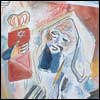We all wear masks. And I don’t mean the ones we slip on during Purim. I’m talking about those everyday masks, the ones that do little to hide our physical characteristics, but do everything to conceal the essence of who we really are.
You know what I mean, don’t you? Our society seems to be in a perpetual state of Purim. With so many of us, myself included, nothing is as it seems. We are constantly presenting to the world the doctored versions of who we really are. It’s as if we believe that nobody could possibly respect or like us unless we appear more cultured, smarter, richer, kinder, or even tougher.
Our masks allow us to be who we wish we really werePerhaps our masks allow us to be who we wish we really were, or who we want others to think we are. I’m one who always attempted to become what the people in control of my life wanted me to become. The reason for the effort was that I wanted acceptance; and that, of course, makes me no different than many people, because we all want acceptance, don’t we?
Many of us think that if we could only window-dress certain aspects of ourselves, then doors would be thrown open to us, and success, love, happiness, as well as acceptance, would nip at our heels. I believe, though, that authentic happiness hinges on the true meaning of success, a meaning which has nothing to do with the amount of money we have in the bank or the number of people we know who have titles in front of their names.
True happiness, I think, hinges on discovering our authentic purpose in this life. And we can’t do that by wearing a mask, a mask that hides our authentic self beneath all the bluster and sham of an artificial and reckless society. No, a false mask will push the dimmer switch that connects us to the G‑dly spark within.
So what do we do? How do we rid ourselves of this alien personality that’s taken over the identity that G‑d imbued within us? How do we go natural? I'm certainly not qualified to make suggestions. However, with a bit of research, I was able to find a successful unmasking, an unmasking that was anything but easy; in fact, the story was fraught with minefields that had to be negotiated by our protagonists.
It’s Queen Esther that I’m talking about. We all know her history. Remember, she was an orphan, raised by her cousin Mordechai. The child grew in grace and beauty, and upon the execution of Queen Vashti of Persia, a call for a replacement queen was sounded throughout the kingdom. Esther was swept into King Ahasuerus’ harem, ultimately becoming the favorite wife.
For very different reasons, people today still hide their Jewish rootsBut before all the hoopla, the big win of the coveted crown, before the beauty contest and the spas—before all of this—Esther was told by Mordechai to keep her Jewish roots a secret, until the proper time came to reveal it. Esther had to wear the mask of assimilation.
Well, what else is new? That’s still going on, isn’t it? As the old saying goes, the more things change, the more they stay the same. For very different reasons, people today still hide their Jewish roots, and in fact, many aren’t even told about their roots until adulthood. Go figure. We’re given a gift but we hide it, or someone hides it for us.
So in the Purim story, it wasn’t until Mordechai had his run-in with Haman that things began to change for the worse. Ah, Haman, the man of many masks, the man who presented himself as brilliant, loyal and deserving of the most coveted of honors. He was the man who wouldn’t be crossed. Remember how Mordechai refused to bow to this relative of Amalek? Remember Mordechai’s reason for the refusal. Mordechai was a Jew and would not bow. And that’s all it took for Haman to go into a fire-breathing rage and demand the death of all of the Jews within Persia.
It was then that Esther was put to the test, when she was asked by Mordechai to intervene for her people. She was told to approach the king and plead the case of the Jews, and in so doing, she had to reveal the fact that she, too, was a member of the tribe.
Esther had a purpose, and she could achieve it only by discarding her mask. She had to admit her Jewish lineage in order to plead for her people. But first she fasted, and asked her people to fast with her and pray for her success. After the fast, after all the prayers, Esther did what she had to do and was granted success. Haman was snared by his own trap and suffered the fate that he had intended for Mordechai, and consequently, the Jewish people were allowed to fight for their survival, which, incidentally, is something unheard-of in today’s world.
There’s a lesson in our story, isn’t there? It’s not just another tale of Jew-hatred, is it? Rather, it’s a discourse on delineating the importance of returning to our true selves because G‑d has a plan for us.
We can’t possibly discern our purpose while attending a masquerade ball within our personal worlds. We’re not listening to G‑d’s message, or even trying to find it, if we are spending our time creating false personalities or attempting to become replicas of others rather than focusing on who we are meant to be.
The world needs authentic people who aren’t afraidIt’s pointless, because the world doesn’t need replicas of others; the world needs authentic people who aren’t afraid to reflect the G‑dly soul that was given to them, who aren’t afraid to go natural in this razzle-dazzle world that ridicules morality and ethics and authentic purpose.
We have an obligation to shrug off the artificial masks that we present to the world, because each of us has a job that can be performed by no one else. There can only be one me, one you, and one Esther. We must all do our jobs. And all jobs are created equal, though not the same. All jobs provide a vital piece to the mosaic of this world, a vital channel to its healing.
There is a famous story of the Torah Sage, Reb Zusha of Anipoli. Before his death, his students came to him and were surprised to find him trembling with fear. They said to him, “Why are you afraid of death? In your life, you have been as righteous as Moses himself.” To which Reb Zusha replied, “In the coming world, G‑d will not ask me why I was not like Moses. He will ask, ‘Why were you not like Zusha?’”
The same holds true for the rest of us.








Join the Discussion